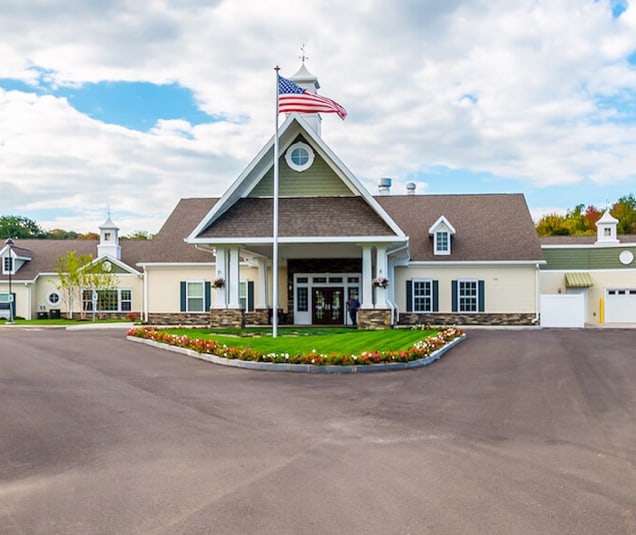The decision to transition into memory care can be deeply personal and sometimes complex, raising numerous questions about the transition for seniors themselves as well as their caregivers and family members. It’s essential to understand not only when and why such care is necessary but also what qualifies someone for this specialized type of service.
Things that qualify you for memory care can include a diagnosis of cognitive impairment, safety concerns, decline of daily functioning, changes in functioning, and caregiver burnout. We will also look at assessments and considerations before choosing a memory care community.
Who Qualifies for Memory Care?
While each individual’s needs are unique, there are common indicators that may suggest a need for memory care:
Diagnosis of Alzheimer’s Disease or Dementia
A formal diagnosis of Alzheimer’s disease or dementia is often the primary qualification for memory care. These conditions can progressively impact memory, cognition, and overall functioning, necessitating specialized care and support.
Safety Concerns
Individuals who exhibit wandering behavior or are at risk of becoming disoriented and lost may benefit from the secure environment provided by memory care communities.
Decline in Daily Functioning
Difficulty with activities of daily living (ADLs), such as dressing, bathing, and meal preparation, may indicate a need for additional support and supervision.
Changes in Behavior
Agitation, aggression, confusion, or other significant changes in behavior may signal a decline in cognitive function and the need for specialized memory care services.
Caregiver Burnout
Family caregivers may reach a point where they are no longer able to provide the level of care and supervision required to ensure the safety and well-being of their loved one with memory impairment.
What Does a Memory Care Assessment Look Like?
The assessment for memory care is a comprehensive process that involves a multidisciplinary team of healthcare professionals. The exact process will vary by senior living community, but generally the team can include a doctor, a neurologist, nurses specializing in dementia care, and possibly a psychologist.
Types of Assessments
The assessment process aims to understand the scope of the individual’s memory issues, medical history, functional abilities, and social needs. It typically involves:
- Medical Evaluations: To identify any underlying medical conditions that may be contributing to cognitive decline. This often includes blood tests, brain imaging tests, and a review of medication.
- Cognitive and Memory Tests: Such assessments measure the individual’s memory, problem-solving skills, attention span, and language capabilities.
- Functional Assessments: These evaluate the person’s ability to perform daily tasks, such as dressing, eating, and personal hygiene.
- Psychosocial Assessments: Aimed at understanding the individual’s social environment, history, personal preferences, and emotional state, which can play a significant role in their care needs.
This detailed evaluation helps in creating a personalized care plan that addresses the specific needs of the individual while ensuring they receive the right level of support and stimulation in a memory care setting.
The Medical Teams & Assessments
Comprehensive examinations are frequently performed by medical specialists to ascertain a person’s eligibility for memory care. The evaluations will examine past medical history, mental capacity, day-to-day functioning, and general behavioral health. During these assessments, physicians, social workers, or memory care specialists use evidence-based instruments and standards to make recommendations that are tailored to the resident’s needs.
When Caregivers Should Consider Memory Care
Knowing when to consider memory care involves both the individual’s state and the caregiver’s capabilities. Caregivers might recognize they’re no longer able to provide the necessary level of care when:
- They’re experiencing caregiver burnout
- The individual’s care needs exceed the caregiver’s physical abilities
- Professional care services become a necessity rather than a convenience
- Safety concerns become too significant to manage in a non-specialized environment
Choosing a Memory Care Community
When the consensus is leaning towards memory care, the next step is to find the right community. Here are some factors to consider:
- Accreditation: Ensure that the community is certified or licensed and holds good standing within regulatory bodies.
- Staff Training & Ratios: Check the ratio of staff to residents and ensure they have specialized training in memory care.
- Safety Measures: The community should have security measures to prevent wandering and ensure the safety of residents.
- Programs & Activities: There should be structured programs that cater to different stages of memory impairment.
- Nutrition & Health Services: Deals with the availability of a nutrition plan and access to health services.
- Community Culture: Consider the atmosphere of the community and whether it feels welcoming and respectful.
Visiting potential communities, speaking with staff members, and reviewing the experiences of other families can also inform you of your decision.

Transitioning to Memory Care
The transition to memory care can be smooth and lead to positive outcomes when done thoughtfully and with careful consideration. Peregrine Senior Living at Onondaga Hill is here for you every step of the way. To learn more about our memory care community, contact us today.












Lots of smiles today at Onondaga Hill with making our snowmen and adding some individual art to each one. Our residents enjoyed themselves with this Creative Craft and check out all of them on display on our fireplace mantel. ... See MoreSee Less
0 CommentsComment on Facebook
Lots of smiles from our community members and their family members this afternoon as we listened to the sweet sounds of Meg Mawhinney!! We also enjoyed some delicious snacks and the warmer weather. ... See MoreSee Less
3 CommentsComment on Facebook
A new year means new beginnings, and for many, that includes finding a place that feels like home. 🏠❤️
Our community offers the perfect blend of comfort, engagement, and care. Whether you’re looking for a vibrant social lifestyle or the peace of mind that comes from knowing support is always nearby, you’ll find it here.
Schedule your tour today and see how life at Peregrine can help you or your loved one thrive in 2026 and beyond!
peregrineonondaga.com/ ... See MoreSee Less
0 CommentsComment on Facebook
As we turn the page to a new year, we take a moment to reflect on the memories we’ve made and the friendships we’ve built. Every new beginning brings fresh opportunities for connection, growth, and joy. 💫
Here’s to a year filled with purpose, peace, and the beautiful moments that remind us how wonderful life can be.
Happy New Year from all of us at Peregrine! 🎆
peregrineonondaga.com/ ... See MoreSee Less
0 CommentsComment on Facebook
Community, collaboration, and care 💫
Loved spending time at our Constant Care 24/7 monthly meeting at Park Rose with some of our favorite partners, Peregrine Senior Living at Onondaga Hill , Aging Advocates CNY , and Living With Dementia CNY 💜 ... See MoreSee Less
0 CommentsComment on Facebook
We made and decorated our own Christmas Cookies on Christmas Eve!!. Loved the creative ideas our community members displayed in their artwork. The best part is they ate them for a delicious snack!!! ... See MoreSee Less
0 CommentsComment on Facebook
Wishing you a Christmas filled with the simple joys that matter most: love, laughter, and time spent with those who make life meaningful! 💌
Within our Peregrine communities, the holiday spirit comes alive through shared meals, cherished traditions, and the connections that make every day feel like home.
From our family to yours, Merry Christmas and blessings for the season ahead.
peregrineonondaga.com/ ... See MoreSee Less
1 CommentsComment on Facebook